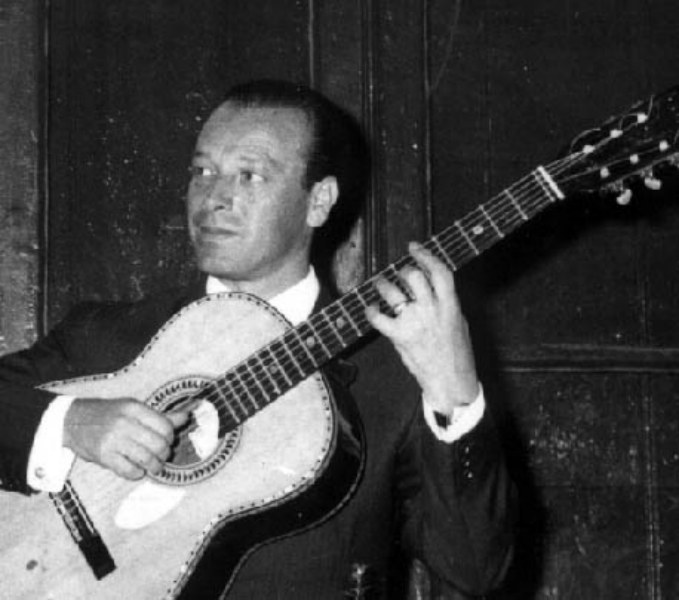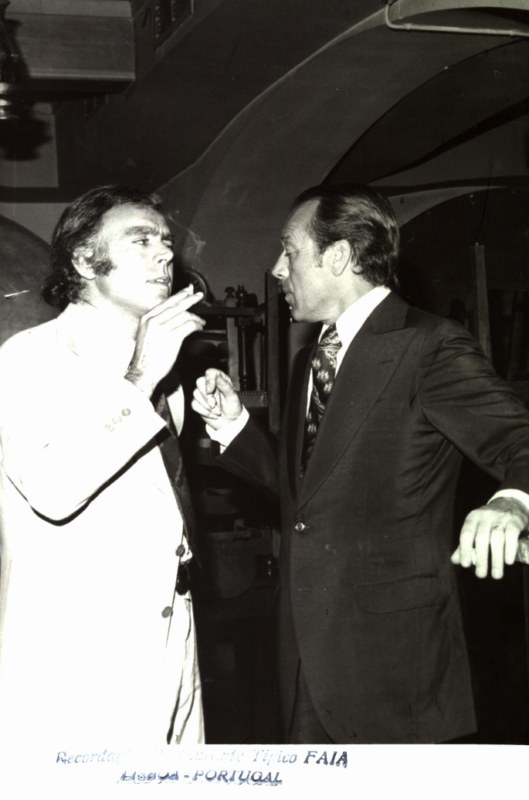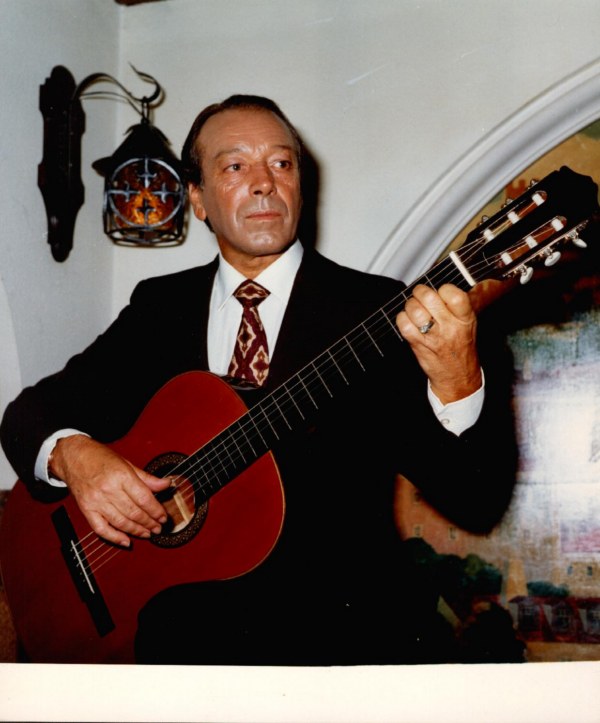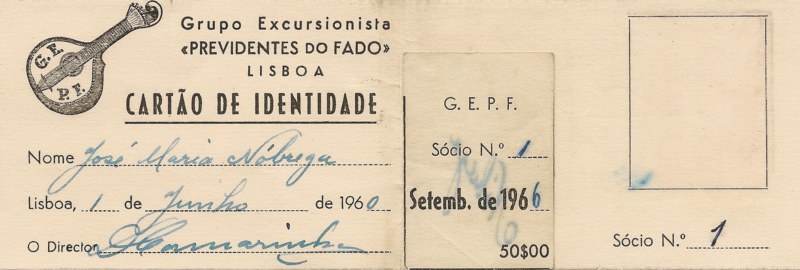Know more:
José Maria Nóbrega
(N. 19 November, 1926 - M. 9 October, 2018)Son of António Teixeira and Angélica Alves da Nóbrega, José Maria Nóbrega Teixeira was born in Alijó (region of Trás-os-Montes), on the 19 November 1926.
He spent he initial stage of his childhood with his godmother, while his parents looked for a better living in the city. At 10, more or less, he joined them in Porto. At that time, influenced by his father, he began to work as a tailor – a job too hard for a boy with a weak complexion for such big efforts, as he “tonnes” of irons he had to handle seemed to weigh too much on such small hands. He gradually learned the secrets of the craft.
In his leisure time Nóbrega watched his father play the “violão” (the name of the instrument in Trás os Montes) with a neighbour who played the mandolin. He soon wanted to learn how to play the mandolin and asked his neighbour to teach him. He worked hard to master the instrument. At the same time another boy of his age learned the violin and the duo made projects to set up a music trio to play at feasts in the city and its outskirts.
They founded the desired Trio with another man who played the Spanish guitar and began to perform during their spare time. They soon grew to a Quartet, then a Quintet and finally a Sextet (violin, mandolin, Spanish guitar, drums, saxophone and accordion) and they set up a music band for playing at the feasts in popular associations and religious festivities on week-ends and holidays.
He was excused from performing his military service duties and, with the profits from his work, he set up a tailor’s workshop at Padrão da Légua, on the way to Póvoa de Varzim.
At 22, he wanted to marry. The same happened to the other members of the band, which gradually disbanded thus putting an end to the group. Meanwhile he had two children, Pedro (1951) and Maria da Graça (1953)
Then he received an unexpected invitation from Portuguese guitar player Álvaro Martins, a barber by trade, and began to pay Spanish guitar in fado. For approximately 10 years they played at a fado house in Porto, "Tamariz", where all major names of Fado of that time performed, boosting a strong exchange between Lisbon and Porto.
Moniz Trindade heard them and invited them to come to Lisbon for a one-month performance at a fado house that was going to open near Praça do Chile, "Pam-Pam". This happened in January 1957. With his wife and children he travelled to Lisbon for the scheduled one-month performance. At the end of the contract they returned to Porto but, after a misunderstanding, José Maria Nóbrega returned to the capital.
He established himself at Largo da Misericórdia as tailor, trying to combine his profession with fado performances. This was however a complicated task, i.e. managing the schedules required by both occupations. He then chose to close down the tailor shop and began to accompany several fado singers on their invitation. In order to improve his talent he registered at the School of Guitar Duarte Costa.
Together with Portuguese guitar player Jorge Fontes he performed at restaurant "O Folclore". At this venue they had the opportunity of travelling a lot and accompanying several artists, namely Ada de Castro and Lídia Ribeiro. In this period he also became acquainted with Portuguese guitar player António Chaínho, with whom he later developed an important work in the music scene.
He simultaneously performed at the fado programmes broadcaster on the radio by Emissora Nacional and was invited by Filipe Pinto to accompany fado singer Amália Rodrigues but turned down the invitation.
When he left "O Folclore" José Maria Nóbrega began to accompany other fado singers, in particular Carlos do Carmo, in innumerable national and international shows, as well as in recordings.
He worked at fado house "Severa" to replace a colleague who was going to be absent for an indefinite period of time. That stay turned out to be much longer than initially expected. Moreover in 2001 Carlos do Carmo suffered an aorta aneurism and both the fado singer and his musicians had to reduce their number of shows.
José Maria Nóbrega built a remarkable career accompanying great names of fado and contributing to their success. In 1981, together with Portuguese guitar player António Chaínho, he received the Fado Press Award (for instrument players). In 2004 at the Grande Noite do Fado in Teatro de São Luiz, he received the Career Award. Interestingly his son Pedro Nóbrega currently achieves an outstanding success performing Spanish guitar and accompanying fado singers.

José Maria Nóbrega, s/d.

Carlos do Carmo e José Maria Nóbrega, s/d.

José Maria Nóbrega, s/d.
-
Fado Maria Vitória José Maria Nóbrega (Alves Coelho)
